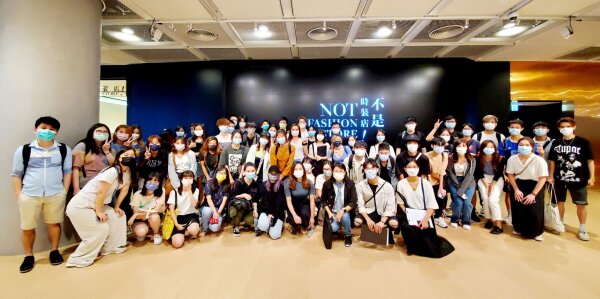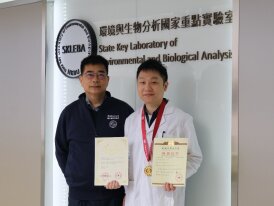
Marketing researchers allied with LCSD to boost museum experience

Around 300 students from two business courses participated in the field experiment at the Hong Kong Museum of Art (HKMoA) in October 2021. The research project aims at examining the effectiveness of engagement and its impact of engagement sequence on enhancing museum visitors’ experience. This is an extended study in response to the call for future research in the report submitted to the Leisure and Cultural Services Department (LCSD) by an academic team from the Department of Marketing early this year.
Led by Prof. Noel Siu, the team, including Dr. Candy Ho, Dr. Tracy Zhang and Dr. Yan Kwan, suggested in the report submitted to the LCSD that the engagement sequence caused different outcomes in terms of visitors’ experience (artifactscape engagement, servicescape, vitality, satisfaction on the visit, loyalty and intention to revisit).
"Engagement after visiting HKMoA tends to elicit more favourable visitor reactions, such as artifactscape engagement and satisfaction on the visit, than engagement before the visit. Outcome variables are also positively correlated,” said Prof. Siu, “In addition, the effects of video engagement on visit satisfaction and intention to revisit differ according to past museum visit frequency."
The results have provided the LCSD’s Marketing Team an insight that post-visit engagement played an important role in visitor experience, especially among visitors who do not visit museums frequently. Henceforth, more attention should be paid to the engagement sequence and artifactscape in formulating museum marketing strategies. The researchers considered this study a pioneering and explanatory one given some significant limitations, such as the unexpected change in the format of the engagement activities due to the pandemic, a relatively small sample size, among others. This study collaboration also prepared an environment for further social impact studies in the long-run, which would fill research gaps, including the museums’ roles and their relevance to health and wellbeing, cultural development and policy making.
Students studying in the Marketing Management and The World of Business courses in this semester were invited to join the experiment. This time the experiment has been modified and more constructs were added to the research model. They were divided into five groups and joined the field trip in different time slots. Dr. Fred Yim was involved by encouraging his students to join the research. In the whole process, students learned about research methodology, services marketing, nonprofit marketing, and operation management. The project “sets a good example of research informed teaching and learning,” Prof. Siu added.
Previous News



